Dec 1, 2017
10 New Trends In Hydroponics: What To Expect In 2017 And Beyond
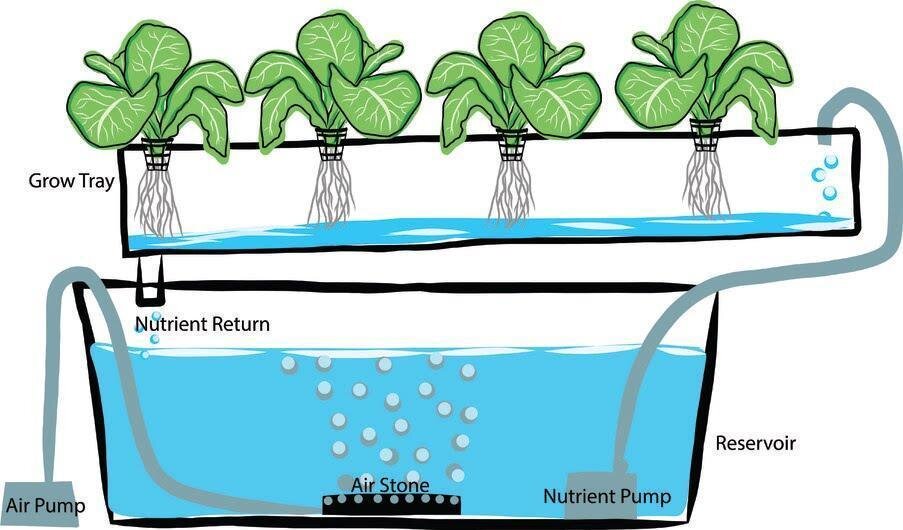
Sourced from LED Lights Nation
WRITTEN BY LUIS RIVERA
Hydroponics is a soilless plant growing method that uses water, nutrient solutions and a growing medium.
This can give the plant exactly what it needs in the proper amounts, resulting in fresh and natural products while also maximizes resource efficiency.
Other benefits of hydroponics include:
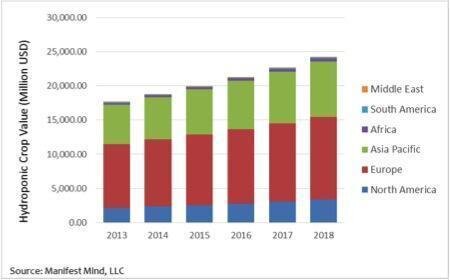
Source: https://s3.amazonaws.com/user-media.venngage.com/399324-d8c002593ecc9cd7e8a96168c193177f.jpg
· Higher yields
· Food can be grown in almost any place
· No pesticides
· 90% more water saving
· 75% more space efficient
· 50% faster growth
Above is an image of what a typical hydroponic system looks like. Hydroponics provides answers to many of the limitations traditional plant growing has, especially water usage and land availability. The importance of hydroponics is set to increase tremendously due to global food production challenges and how efficiently the system works should help substantially.
How Has Hydroponics Developed?
Hydroponics has actually been around for a long time but has flourished in recent years as scientists are constantly looking for ways of improvement.
Among the latest innovations in the field are solutions that balance pH and non-synthetics with the help of biologically alive nutrients and more and more farmers are setting their eyes on this growing method and realizing the benefits.
With the involvement of hydroponics in fields such as vertical farming and the R&D efforts of equipment suppliers, such as LED grow lights, which are vital to the process, we can expect that the use of hydroponics will only continue to grow.
By examining the most recent trends in the field we can gain a better understanding of how it will develop in the future and play an important part in feeding the world.
#1: Locally Grown Food
One of the great things about hydroponics is the functionality on different scales, viable for large warehouse scale production and also for small store operation, enabling for the supply of fresh and locally produced food to nearby consumers.
With an increasing trend for healthy eating and demanding quality fruits and veggies, hydroponics is set to play an important role in terms of supply. More people are starting to buy locally produced organic food, which in turn drives the industry and stimulates demand.
#2: Aquaponics Sustainability
Food production sustainability is a hot topic in light of global challenges such as diminishing natural resources. Aquaponics is a growing method that combines hydroponics and fish farming, resulting in a sustainable microsystem. It uses the waste the fish produce in order to feed the plants while simultaneously using the plants to filter the water for the fish.
Here is a video example of how the system works.
#3: Hydroponics In Cannabis Production
According to The Hemp Business Journal the cannabis market has the potential to grow 700% by 2020, amounting to $2.1 billion market and hydroponics might play a vital part in the production process. With each state having its own regulations, the need to grow it locally will be even greater, leading manufacturers to look for different options.
The hydroponic process of growing cannabis results in an all-natural and clean product, which is especially vital when it comes to medicinal purposes. Furthermore it enables growers to feed the plant with a calculated amount of nutrients and results in a substantial yield increase.
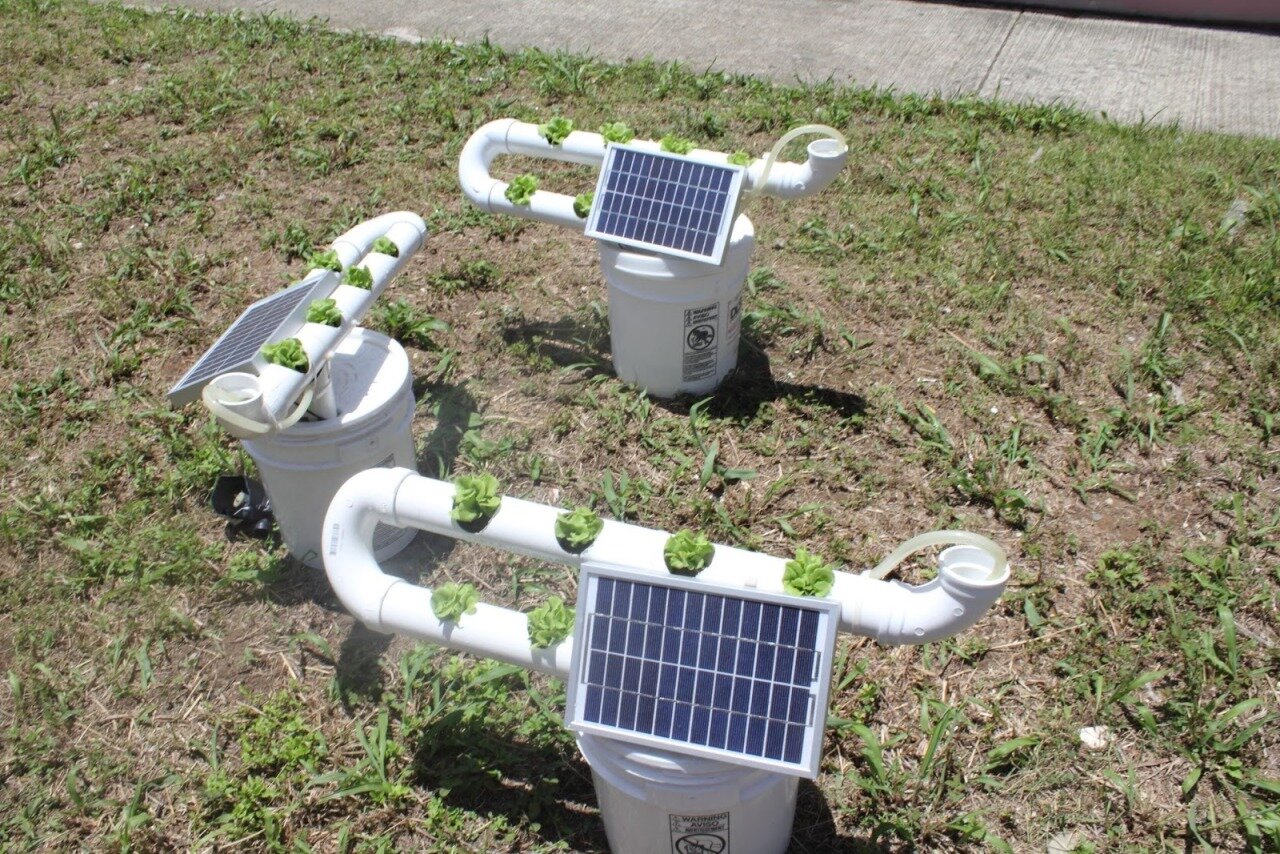
Sourced from Pinterest
#4: Solar Panels In Hydroponic Systems
Future hydroponics will integrate with other advanced technology in order to bring efficiency not only to plant growing, but to other fields as well.
One such example is a hydroponic system which uses solar panels to power the circulation pumps. Electricity is a big concern in agriculture such a system can bring costs down and provide self-sufficiency.
#5: Homemade Hydroponic Systems
Global commercial farmers and small local growers are both recognizing the benefits of hydroponics and it’s only a matter of time before more people start adapting it to their everyday needs.
There are already numerous examples of home growing systems utilizing hydroponics and LED lighting, enabling people to produce fresh greens in very limited spaces like balconies, basements or kitchens.
In case you`d like to try it out, here is an instruction of how you can make a hydroponic system of your own.
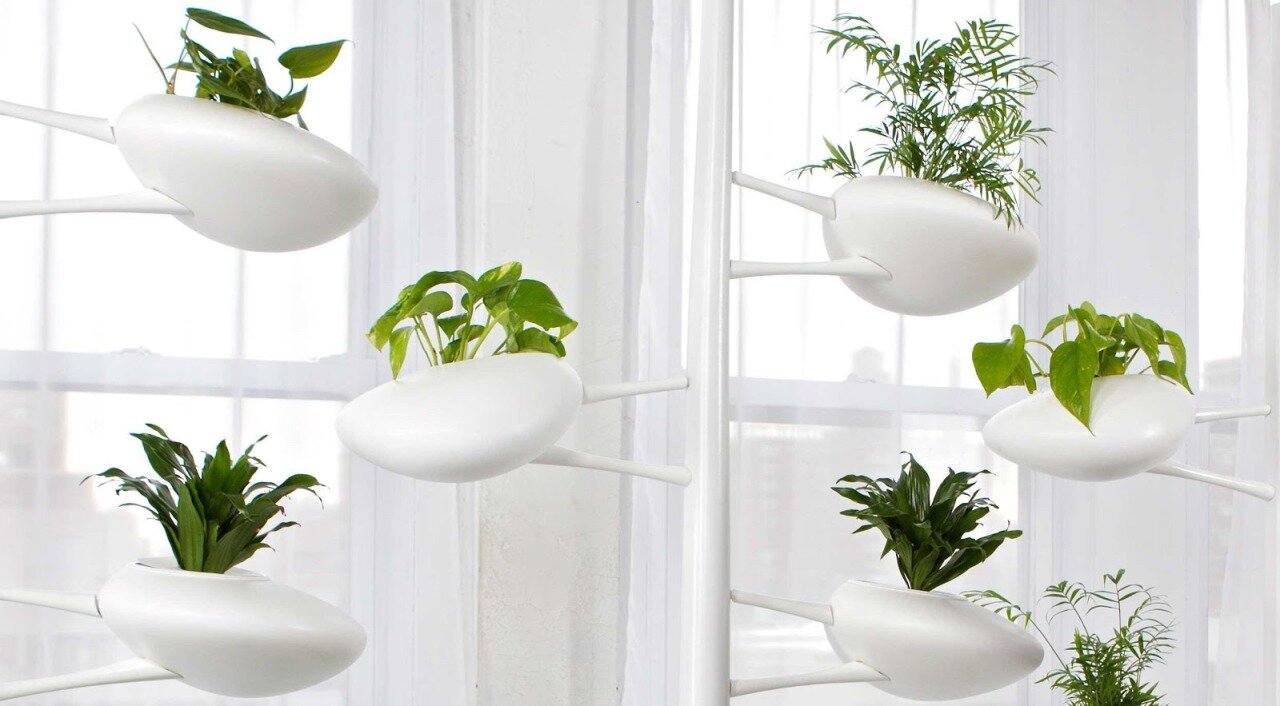
Sourced from The Decoist
#6: Decorative Function
Aside from providing nutrients to plants, the intricacies of a hydroponic system might be used as a decoration piece, especially in restaurants that produce their greens in-house. Admittedly this is one of the stranger developments, but considering how many food establishments have fountains inside this might not be strange at all.
The possibilities expand to growing real flowers and herbs inside, bringing both an assurance of freshness and also appealing to the customer’s eye.
#7: Growing Plants Anywhere In Any Season
Hydroponics enables farmers to produce tasty, pesticide free fruits and veggies in almost any location during any season. This is especially beneficial for places with harsh weather conditions or insufficient arable land, such as Dubai or Alaska.
This video shows the success story of a local family farm in Virginia that uses hydroponics to grow lettuce year round. What her customers point out as a great benefit is the great taste and quality of lettuce even in the winter.
#8: Hydroponic Education
In order to ensure the development of hydroponics, efforts are being put into not only research but also education. There are increasingly more aquaponics educational facilities opening up, programs being offered and resources published.
One such facility is Green Acre Aquaponics in Florida, which teaches students how to develop and maintain a thriving aquaponics farm. The program includes lessons focused on building the system but also features more business oriented topics like farming market analysis and sales development techniques.
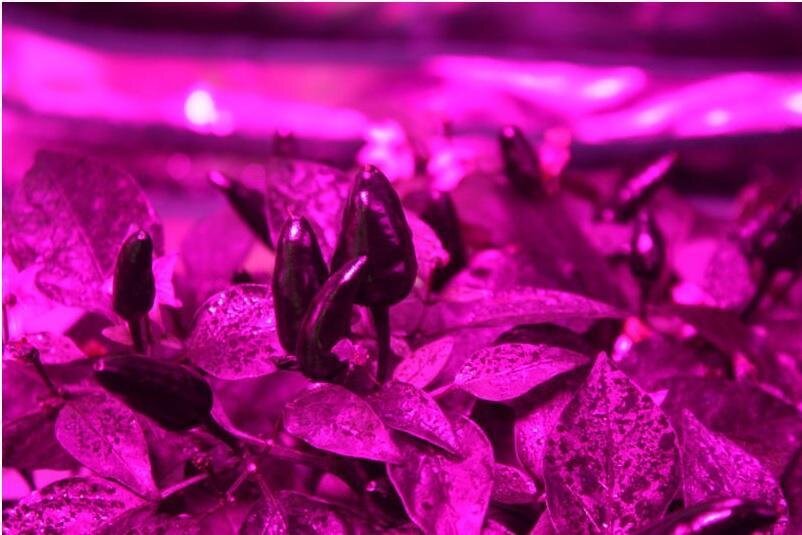
Sourced from Advanced LED Lights
#9: Spectral Science & Hydroponics
Plants need to photosynthesize in order to grow and any hydroponic system needs to be supported by a full spectrum LED grow light installation.
The benefits include higher yields, adjustable light spectrum for each growth stage, electricity efficiency and heat efficiency. Low heat output LED grow lights eliminate the need for additional cooling systems and bring further compactness and efficiency to hydroponic systems.
#10: Aeroponics In Vertical Farming
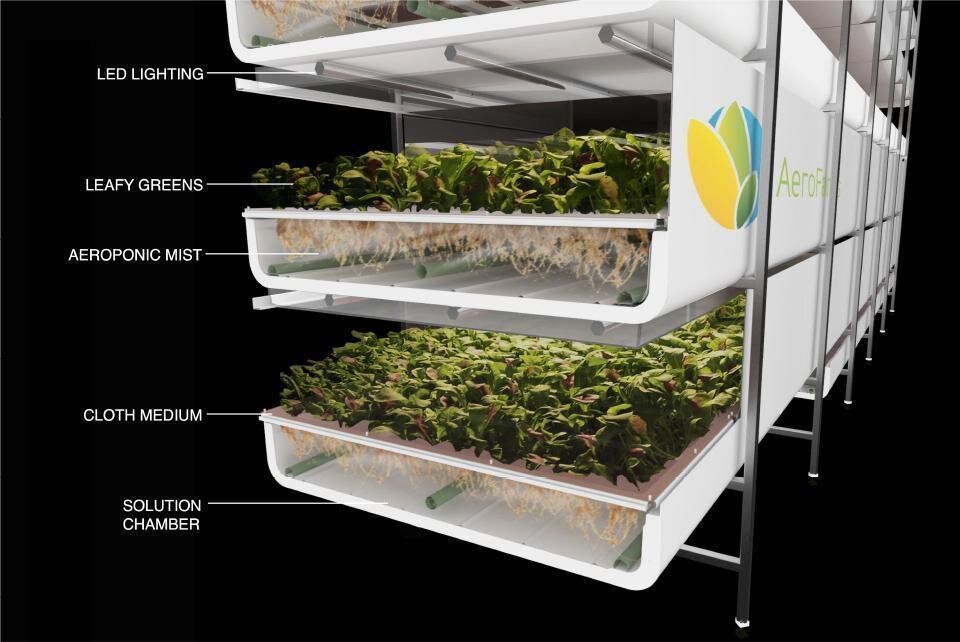
Sourced from AeroFarms
Aeroponics in reality, is a nutrients delivery system and as such it can be applied to almost any plant growing method with vertical farming being at the top.
Vertical farming with aeroponics addresses many of the issues related to conventional agriculture and there is an increasing amount of farms all around, with AeroFarms being one of the best examples.
This image shows how their production method works.
With aeroponics being an incremental part of vertical growing, it`s safe to say that the two fields are very closely correlated both in terms of innovation efforts and development. Systems for maximum oxygen delivery to the roots, better nutrients circulation and resource management are just a few of the aspects that are being improved.
Hydroponics is becoming a widely used growth method and more people are realizing its potential. There are constant R&D efforts to improve its efficiency, but there are also system adaptations from other fields.
With global shift towards organic food and the importance hydroponics plays in its production, we can predict that the growth is just starting.

